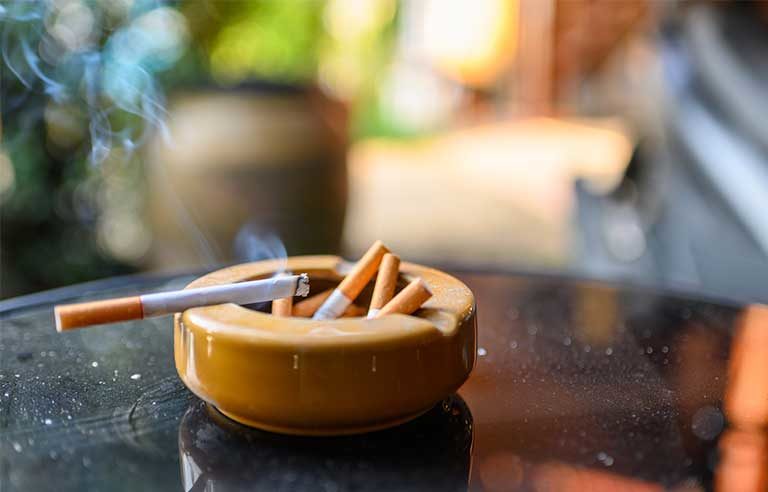Is ‘thirdhand smoke’ a risk in your home?

If you live with someone who smokes tobacco, toxic chemicals aren’t just in the air you breathe – they accumulate on household items and surfaces, a group of researchers is warning.
The residue from tobacco smoking products is known as “thirdhand smoke,” and it can increase every household member’s risk of developing cancer. A previous study conducted by researchers from the California Consortium on Thirdhand Smoke showed that aerosolized nicotine – released during smoking and vaping – “adsorbs to indoor surfaces, where it can interact with … nitrous acid to form strongly carcinogenic compounds called tobacco-specific nitrosamines.”
This thirdhand smoke can continuously generate TSNAs, long after smoke clears the room. This allows TSNAs to enter the body through inhalation and breathing in dust.
In a recent follow-up study, the researchers found that TSNAs can enter the body through direct skin contact with polluted air or contaminated surfaces such as bed sheets. In addition, nicotine on the skin may react with nitrous acid in the environment to form TSNAs directly on the body.
The researchers note that exposure through all of these pathways – inhalation, dust ingestion and dermal absorption – under typical indoor conditions can result in doses of a certain TSNA that exceed health guidelines known as No-Significant Risk Levels established by California’s Office of Environmental Health Hazard Assessment.
“These findings illustrate the potential health impact of thirdhand smoke, which contains not only TSNAs, but hundreds of other chemicals, some of which are also known carcinogens,” study co-author Neal Benowitz, a professor at the University of California, San Francisco who leads the consortium, said in a press release.
The study was published in the journal Environmental Science & Technology.
Post a comment to this article
Safety+Health welcomes comments that promote respectful dialogue. Please stay on topic. Comments that contain personal attacks, profanity or abusive language – or those aggressively promoting products or services – will be removed. We reserve the right to determine which comments violate our comment policy. (Anonymous comments are welcome; merely skip the “name” field in the comment box. An email address is required but will not be included with your comment.)
